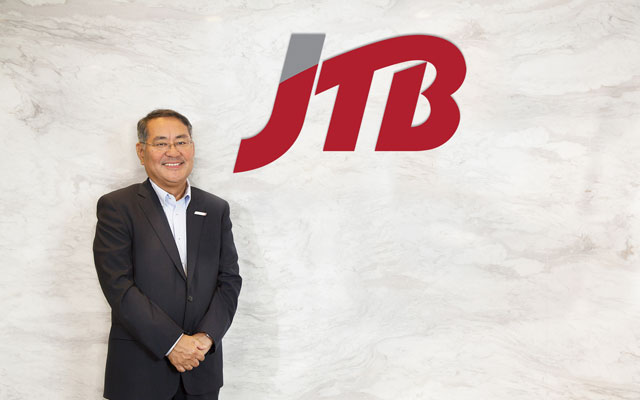Upgrading JTB’s digital strategy is a priority of the DMC’s new president & CEO, Toru Ikuta, who takes over from predecessor Billy Kurosawa.
Before moving to Singapore for this role in January, Ikuta was based in Japan as managing executive for outbound group travel under JTB. Now, he oversees JTB’s operations and development in Asia-Pacific.

“A lot of our customer and tour group applications have been done manually using paper-based systems. I hope to move everything online to platforms like apps,” he explained.
This boost will help the DMC expand their presence in Asia and promote development and exchange in Singapore and across the region. Out of Singapore’s 18.5 million international visitor arrivals, JTB sees about 437,000 Japanese travellers.
“We want to work to continue expanding these numbers,” Ikuta expressed.
Along with internal enhancements, he hopes to build on the trend of strong partnerships, such as the 2017 deal with Singapore Tourism Board, in which he was also involved.
Under this MoU, new tourism campaigns and content developed for Singapore are bearing fruit. There was a 175 per cent increase in Japanese tourists to the country, and JTB will continue to grow interest in the destination, said Ikuta.
“Our goal is to also work with more government organisations in the region, including Singapore,” he shared.
JTB is also working to address Japan’s overflowing inbound tourism numbers, which includes a large segment of repeat visitors. As of 2018, international visitor arrivals hit 21.8 million; with the Tokyo Olympics in 2020, Japan aims to bring this number up to 40 million.
To draw the crowds away from hotspots like Kyoto, the key is in unique regional trips, said Ikuta. “A key trend we’re seeing is many more repeat travellers. They look out for three things: personalised trips, more experiential travel and specific locations outside of the big cities.”
Popular activities include sushi making, festivals, rice planting, religious village experiences and cosplay events, in regions such as Tohoku, Hokuriku and Kyushu.
Providing such expert arrangements and recommendations is especially crucial to drawing the repeat segment, which tends to avoid tour packages in favour of booking their own flights, hotels and transport.




















